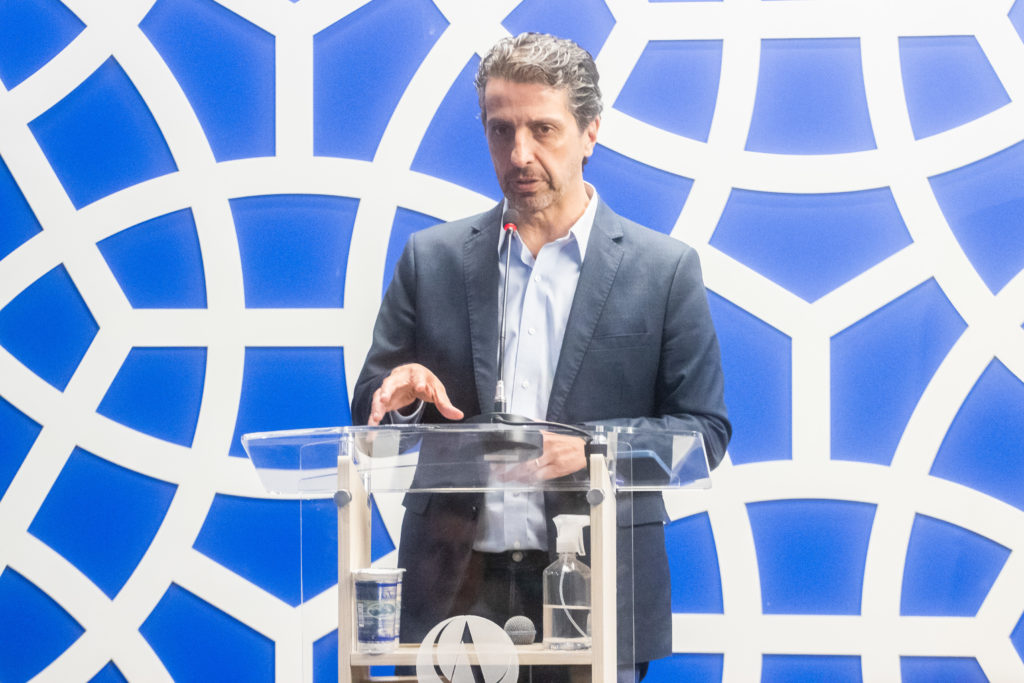São Paulo – The Brazilian government will present next month a framework for the Brazilian national carbon trading scheme and expects to have the Arab countries as credit buyers and investors. So said the country’s Environment minister Joaquim Leite in a lecture on Friday (1) in São Paulo for Arab Brazilian Chamber of Commerce (ABCC) members.

Coming back from a meeting at the Organization for Economic Co-operation and Development (OECD), the minister was enthusiastic about the role that Brazil could play in international carbon trade, helping countries and companies to reach their emission reduction targets by selling them credits. He believes that Brazil could have a 25% market share in this global market, which moves around USD 100 billion.
Leite says that the cost for cutting emissions in Brazil will be much smaller – it could be as low as 10% – than in other countries. He says that there are cases of emission reduction that are physically impossible or uneconomic, and he believes that the country could step forward in these situations. Furthermore, the minister sees a diversity of possible sectors for Brazil to explore, which he calls as “a renewable energy pre-salt.” “The world will surely look to Brazil as a player in this market,” he said.
The minister believes that there will plenty of opportunities for the Arabs to buy credits in Brazil. He also regards the businesspeople from the region as potential investors in projects generating credits here in Brazil, particularly biomethane production to substitute diesel, green hydrogen, and offshore wind energy. “I believe these are three sectors that the Arab investors will be extremely interested in to develop here, allocate resources here, even for exporting it,” he said.

The voluntary carbon market is a reality in Brazil and elsewhere, but the countries have sought for regulation. That’s the goal of the federal government with a forecasted framework for the sector. “We are designing the world’s most innovative market,” Leite said. According to him, the world has a very interventional carbon credit market. “We believe that we could do something more liberal while cutting emissions,” the minister said.
Leite summed up what this regulation could entail, mentioning the creation of a single registration system and the work of the Real State Value Commission (CVM) in recognizing assets. To participate, you have to be committed to be carbon-neutral by 2050. There’s even a bill presented to the president of the Chamber of Deputies, Arthur Lira.
The minister explained how the current moment differs from the one when the Kyoto Protocol was implemented, as there was no demand for carbon credits back then. He said that this demand arose last April at the World Leaders Summit joined by companies. “This is a complex global market, but the corporate demand is a certainty,” he said.

In his lecture, Joaquim Leite also discussed his two-day participation in the ministerial meeting at the OECD, which he attended on Wednesday (30) and Thursday (31). During the meeting, the minister presented a project launched by the government of biomethane production out of organic waste to substitute diesel in heavy vehicles. He also talked about offshore wind energy projects, such as the installation of equipment in the sea, and green hydrogen.
He said Brazil was warmly welcomed in the meeting. “They realized that Brazil is part of the solution,” he said. The minister says that Brazil has now a unique opportunity to be a global food, carbon credit and green hydrogen supplier. “If we weigh up the environmental indicator, Brazil will surely lead the global trade,” he said.
ABCC
The event featuring the lecture of the Environment minister was opened by the ABCC president Osmar Chohfi, who discussed the efforts of the entity to connect Arabs and Brazilians while increasing engagement with sustainability. Chohfi talked about some activities held in the sector like holding the Brazil-UAE: Amazon Economic Sustainability Forum at the Expo 2020 Dubai, which feature Brazil vice president Hamilton Mourão.
Chohfi also analyzed the relevant role that Brazil plays in the environmental sector. “Brazil, with its unparalleled biodiversity, can play an extremely important role in the future of the green economy,” he said. He pointed out Brazil’s commitment to cut carbon emissions by 2030 and the many efforts the Arab countries have made for sustainability.
Translated by Guilherme Miranda




